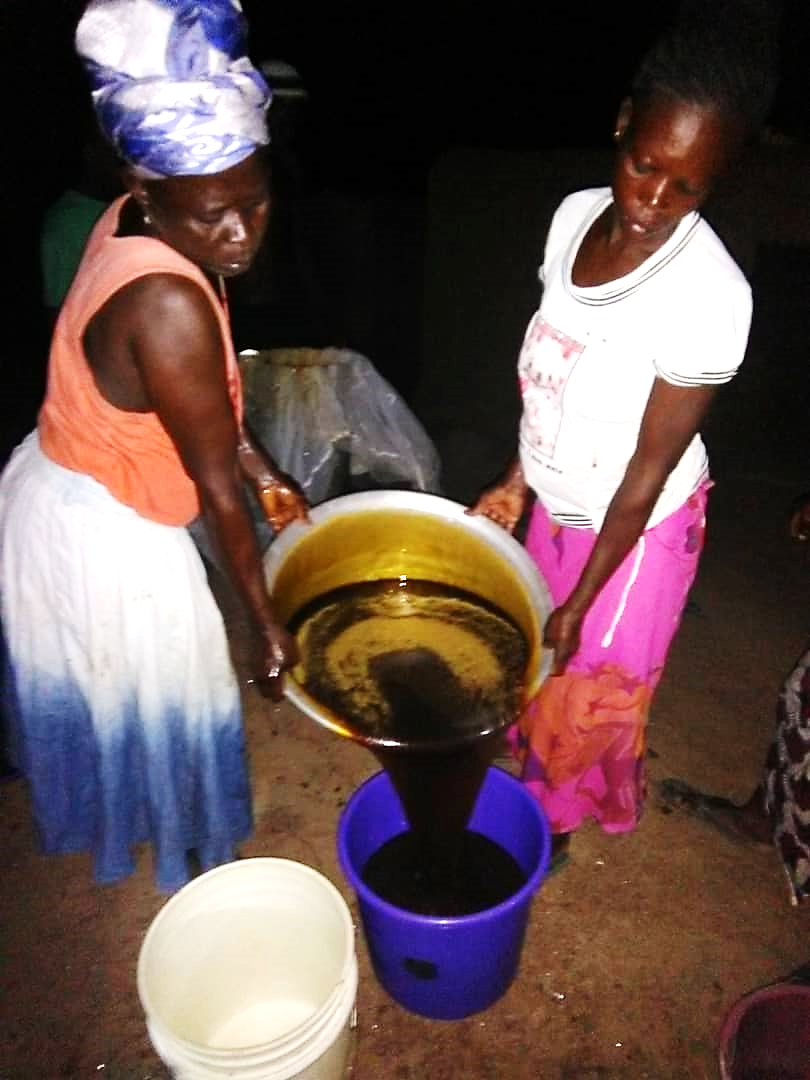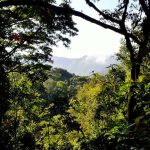Conservation of biodiversity on the outskirts of Mole National Park (Ghana) through the development of green industries
Coalition for Development of Northern Ghana, (NORTHCODE) is a Ghanaian Non-Governmental Organization (NGO). She working in the area of biodiversity Conservation and Rural Livelihoods reinforcement activities in the Jelinkon Community Resource Management Area (CREMA). NORTHCODE’s initiatives are focused at addressing challenges in biodiversity conservation, and rural livelihoods faced by populations living on the fringes of the Mole National Park, in the Savannah Region in Northern Ghana.
With funding from IUCN/PPI 5, NORTHCODE is implementing an 18-month project dubbed “Biodiversity Conservation of Mole National Park’s periphery through Community-based Resource Management and Green Livelihoods Development” It is aimed at securing the ecological integrity of the Mole National Park (MNP) through more inclusive and effective governance and management of natural resources and development of green livelihoods in off-reserve areas.
NORTHCODE project site is the Jelinkon CREMA, consisting of ten (10) communities fringing the Mole National Park (about 4 840 km²) located in the Guinea savannah agro-ecological zone of West Africa. The climate of the CREMA area is tropical continental with a rainfall pattern characterized by a single wet season which starts from April to October. The rest of the year is very dry with almost no precipitation. The vegetation in targeted CREMA area is predominantly Savannah vegetation with Parkia and Shea trees being some of the most important economic tree species.
Environmental Context and Threat
Within the fringe communities and beyond, human activities have been limited to localized farming and the collection of fruits, firewood, and honey-harvesting as well as annual bush burning. Ostensibly, the project area has been subjected to annual bushfires that devastate large tracks of the woodlands, increasing human activities in the ‘struggling’ ecosystem, continuous poaching activities, and increasing exploitation of natural resources for food and income by fringe-communities of the Park.
In recent times, sustained deforestation for specific timber species mainly Rosewood and other timber species for foreign markets is rapidly degrading the Jelinkon CREMA. It is obvious that the natural resource base in the Mole National Park, the Jelinkon CREMA and its surrounding fringe community’s needs to be far more prudently managed than it is for now. The need for biodiversity conservation and livelihood reinforcement options is even more compelling and demanding in the wake of the influx in Northern Ghana by the Fulani pastoralists with large herds of cattle that within a few weeks, devastate large acres of fragile and vulnerable natural savannah vegetation on the fringes of the Park including the Jelinkon CREMA. All these resource exploitations in fringe communities and others is a major threat which is gradually undermining the conservation goals for off- and on-reserve parklands.
Socio-Economic Context
The Jelinkon CREMA and other Communities depend largely on the biodiversity of the ecosystems around them for their livelihoods and survival. Harvesting of Dawadawa (Parkia biglobosa), Shea (Vitellaria paradoxa), Non-Timber Forest Products (NTFPs), hunting of game, wild honey harvesting all constitute key sources of livelihood during the long dry season and provide an important safety net. Non-farm activities provide substantial additional income streams for men and women during the lean season such as agro-processing, commerce, charcoal production, firewood gathering among others. Agro-processing, which is mostly carried out by women is generally pursued through traditional methods and on very small-scale bases. These activities which are the inhabitant’s socio-economic source of living have adversely affected the environment of the CREMA intervention area and threaten the existence of the natural biodiversity.
Intervention with funding from PPI 5, NORTHCODE’s project intervention is anchored on three strategic objectives :
– Enhance beekeeping value chain as an incentive towards conservation within the Jelinkon CREMA in the Sawla Tuna Kalba District in the Savannah region of Ghana
– Reinforce community-led governance of natural resource and contribute to biodiversity conservation and sustainable use of natural resources in 15,000ha of community-lands fringing the Mole National Park.
– Sustain the model through information sharing, skill share and knowledge exchange.
So far, 22 well organized honey producer groups in multiples of 10 per group totaling 220 beneficiaries (65% women 35% men) have been set up. A total of 100 bee hives and stands and other accessories including overall suits, wellington boots, hats and veil, smokers, hand gloves, locally made extractors among others were procured and distributed to all 22 groups. Tailor made training of beneficiaries on apiary establishment and management, honey harvesting, processing and packaging has been organized severally for producers with the aim of enhancing their capacities in the honey value chain.
Within the period, all defunct Community Resource Management Committees, (CRMCs) and CREMA Executive Committees (CECs) were revamped to be more effective and functional. In addition, a total 50 Community members were identified and selected as CREMA Patrollers. With practical and technical support from the Mole Park, all 50 patrollers under went training on patrol duties and data collection and analysis. This is to equip patrollers with the needed skills to continuously patrol and monitor illegal activities in the CREMA core zones and to ensure the CREMA is protected.
As part of efforts to restore lost biodiversity, 10,000 seedlings consisting of kapok, balanites and pakia were raised and transplanted in degraded lands within the CREMA. A nursery has been established for the communities to continue to raise seedlings for the restoration of degraded lands.
NORTHCODE organized several workshops involving relevant stakeholders including NGOs, traditional authorities, Government agencies etc aimed at learning and sharing experiences and to effectively collaborate to addressing the devastating effects of the rapid biodiversity loss. A one-day safari was organized for the Jelinkon CREMA Community members to the Mole National Park to offer community members the opportunity to have a feel of the natural vegetative ambiance of the well protected Park reserve. NORTHCODE plans more training opportunities for patrollers and producer groups into the foreseeable future and needs support from philanthropists and donors.




